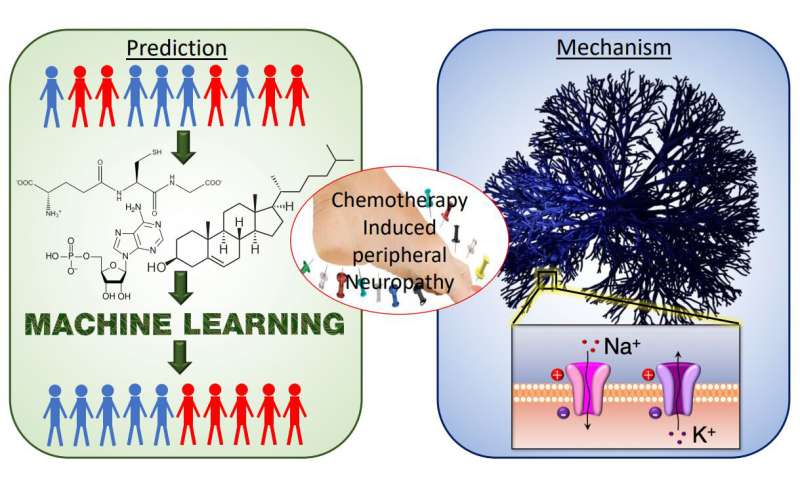
A study published in the American Journal of Managed Care states that the number of patients requiring first-line chemotherapy is expected to increase by more than 50%, from 9.8 million to 15 million, from 2018 to 2040.
One of the most common side effects for those undergoing chemotherapy is peripheral neuropathy, a set of symptoms caused by damage to nerves that control the sensations and movements of arms, legs, hands and feet. The issue can be so intense in children that they can have trouble with simple handwriting and walking.
Now, Purdue University pain researchers and engineers are working with medical experts at Riley Hospital for Children in Indianapolis, a metabolite profiling expert at Bindley Bioscience Center, and applied mathematicians at Max Planck Institute in Germany. They are working to develop methods to better predict which patients will have side effects from specific chemotherapy drugs and develop therapeutic cures for it.
They have studied patient data to specifically look for biomarkers that are linked to chemotherapy-induced peripheral neuropathy. They developed machine learning models that can help in predicting this side effect during the early stage of chemotherapeutic treatment, and have developed a user-friendly tool to help physicians predict susceptibility of patients to neuropathy. More information about their work on predicting this side effect can be found at medRxiv.
“We are taking what we have already learned about pain sensation and applying it to a way forward toward more personalized medicine for chemotherapy patients,” said Parul Verma, a Ph.D. candidate in Purdue’s Davidson School of Chemical Engineering. “We take patient data and look for certain biomarkers that can significantly increase the likelihood of chemotherapy-induced peripheral neuropathy.”
The other members of the Purdue team include Doraiswami Ramkrishna, the Harry Creighton Peffer Distinguished Professor of Chemical Engineering, and Yang Yang, an assistant professor in Purdue’s College of Pharmacy. The have partnered with experts at Max Planck Institutes in Germany to study the mechanism of chemotherapy-induced peripheral neuropathy.
Verma and Ramkrishna predict potential effects of a chemotherapy drug on a neuron that can induce peripheral neuropathy. Yang Yang validates the findings by recording electrical activity of a neuron culture.
“This is really about examining the mechanisms of neuropathy and other side effects and what happens to the neurons in the body due to chemotherapy,” Verma said. “Then, we can design drugs to treat cancer without causing the side effects or at least reduce the number or severity of side effects.”
Source: Read Full Article
